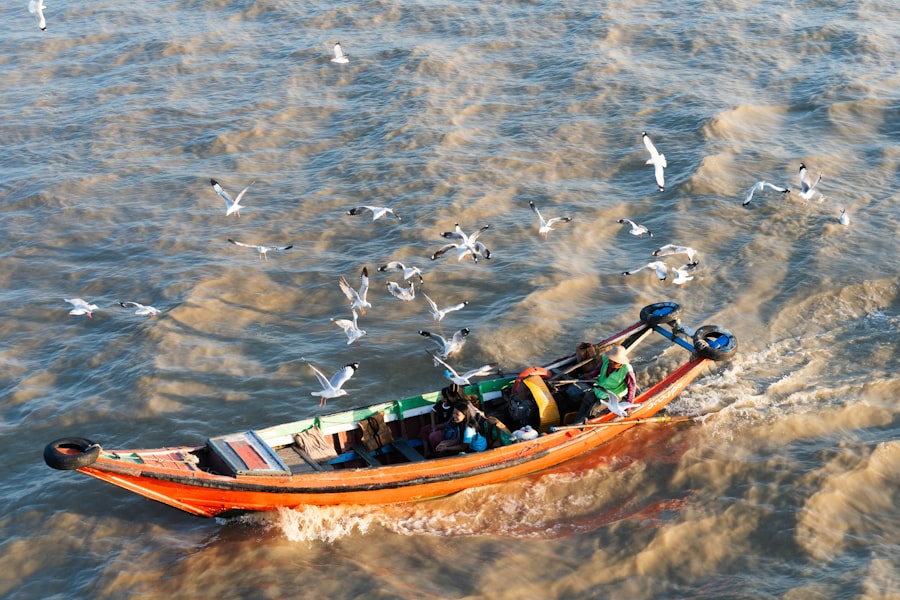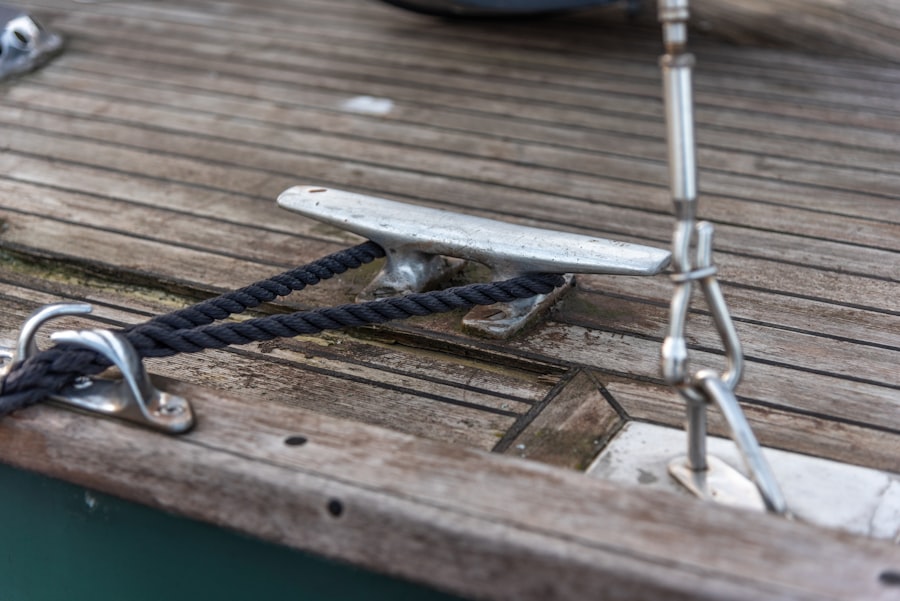Fisheries observers play a crucial role in the sustainable management of marine resources. These trained professionals are deployed on fishing vessels to collect data on fish catches, bycatch, and compliance with regulations. Their presence is essential for ensuring that fishing practices adhere to legal standards and that the health of marine ecosystems is maintained.
Observers gather vital information that informs fisheries management decisions, contributing to the long-term viability of fish stocks and the overall health of ocean environments. The work of fisheries observers is not only technical but also involves navigating complex social dynamics within the fishing industry. They often find themselves in challenging situations, working alongside crew members who may be resistant to oversight.
Despite their importance, fisheries observers frequently face significant risks, including intimidation and violence, which can undermine their ability to perform their duties effectively. Understanding the challenges they face is essential for fostering a safer working environment and ensuring the sustainability of global fisheries.
Key Takeaways
- Fisheries observers play a crucial role in monitoring and ensuring sustainable fishing practices.
- Intimidation and violence against observers undermine fisheries management and conservation efforts.
- Multiple factors, including economic interests and lack of enforcement, contribute to observer intimidation.
- Legal frameworks and international cooperation are essential to protect observers and uphold fisheries laws.
- Preventive strategies and increased awareness are needed to safeguard observers and promote industry transparency.
Importance of Fisheries Observers in the Fishing Industry
The significance of fisheries observers extends beyond mere data collection; they serve as a bridge between regulatory bodies and the fishing industry. By providing independent assessments of fishing practices, observers help ensure compliance with international agreements and national laws designed to protect marine resources.
This oversight is particularly vital in regions where illegal, unreported, and unregulated (IUU) fishing poses a significant threat to marine biodiversity. Moreover, fisheries observers contribute to the economic stability of coastal communities that rely on fishing as a primary source of income. By promoting sustainable practices, they help ensure that fish populations remain healthy and that fishing industries can thrive in the long term.
The data collected by observers can also inform scientific research, leading to better understanding and management of marine ecosystems. In this way, fisheries observers are not just enforcers of regulations; they are key players in the broader effort to balance economic interests with environmental stewardship.
Instances of Intimidation and Violence Against Fisheries Observers

Despite their critical role, fisheries observers often encounter hostility from crew members on fishing vessels. There have been numerous documented instances of intimidation, ranging from verbal harassment to physical threats. Such behavior can create a hostile work environment, making it difficult for observers to carry out their responsibilities effectively.
In extreme cases, observers have reported being physically assaulted or coerced into altering their reports to favor the interests of the crew or vessel owners. These incidents of intimidation are not isolated; they reflect a broader culture within some segments of the fishing industry that resists oversight and accountability. The fear of repercussions can deter observers from reporting violations or accurately documenting practices that may be harmful to marine ecosystems.
This not only jeopardizes their safety but also undermines the integrity of the data collected, ultimately affecting fisheries management and conservation efforts.
Factors Contributing to Intimidation of Fisheries Observers
| Factor | Description | Impact Level | Frequency |
|---|---|---|---|
| Fear of Reporting Violations | Observers face threats when reporting illegal fishing activities. | High | Common |
| Lack of Legal Protection | Insufficient laws to protect observers from harassment or violence. | High | Frequent |
| Economic Pressure | Fishermen fear loss of income if violations are reported. | Medium | Occasional |
| Remote Working Conditions | Observers work in isolated areas with limited support. | Medium | Common |
| Inadequate Training | Observers may lack skills to handle confrontations effectively. | Low | Occasional |
| Cultural Barriers | Differences in language and customs can lead to misunderstandings. | Low | Rare |
Several factors contribute to the intimidation faced by fisheries observers. One significant element is the power dynamics inherent in the fishing industry. Crew members may feel threatened by the presence of an observer, perceiving them as an intrusion into their work environment.
This perception can lead to defensive or aggressive behavior, particularly if crew members believe that their livelihoods are at stake due to potential regulatory scrutiny. Additionally, the lack of robust legal protections for fisheries observers exacerbates their vulnerability. In many regions, observers operate without adequate support from regulatory agencies or law enforcement, leaving them exposed to retaliation without recourse.
The absence of clear protocols for reporting incidents of intimidation further complicates their situation, as observers may feel uncertain about how to seek help or report violations safely. This combination of power imbalances and insufficient protective measures creates an environment where intimidation can flourish.
Impacts of Intimidation on Fisheries Observers and the Fishing Industry
The impacts of intimidation on fisheries observers extend beyond individual experiences; they have far-reaching consequences for the fishing industry as a whole. When observers are unable to perform their duties due to fear of retaliation, the quality and reliability of data collected can suffer significantly. This undermines the effectiveness of fisheries management strategies and can lead to unsustainable fishing practices that threaten fish populations and marine ecosystems.
Moreover, the culture of intimidation can deter qualified individuals from pursuing careers as fisheries observers. The potential for violence or harassment may discourage talented professionals from entering this field, leading to a shortage of skilled personnel needed for effective oversight. This lack of qualified observers can further weaken regulatory frameworks and hinder efforts to combat illegal fishing practices.
Ultimately, the cycle of intimidation not only affects individual observers but also jeopardizes the sustainability and economic viability of the fishing industry.
Legal and Regulatory Frameworks for Protecting Fisheries Observers

Recognizing the challenges faced by fisheries observers, various legal and regulatory frameworks have been established to provide them with protection. International agreements, such as those developed by regional fisheries management organizations (RFMOs), often include provisions aimed at safeguarding observers from intimidation and violence. These frameworks emphasize the importance of observer safety and outline responsibilities for vessel owners and crew members regarding their treatment.
However, enforcement of these protections remains inconsistent across different jurisdictions. In some regions, legal frameworks may exist on paper but lack effective implementation or oversight mechanisms. This gap between policy and practice can leave observers vulnerable in situations where they require support or protection.
Strengthening these legal frameworks and ensuring that they are actively enforced is crucial for creating a safer working environment for fisheries observers.
Efforts to Address Intimidation of Fisheries Observers
In response to the growing awareness of intimidation faced by fisheries observers, various organizations and stakeholders have initiated efforts to address these issues. Training programs aimed at both observers and fishing crews have been developed to foster mutual understanding and respect. These programs emphasize the importance of collaboration between observers and crew members in achieving sustainable fishing practices.
Additionally, advocacy groups have been working to raise awareness about the challenges faced by fisheries observers at national and international levels. By highlighting specific incidents of intimidation and violence, these organizations aim to galvanize support for stronger protections and more comprehensive training programs. Collaborative efforts between governments, NGOs, and industry stakeholders are essential for creating a culture that values observer safety and recognizes their critical role in sustainable fisheries management.
Case Studies of Intimidation of Fisheries Observers
Several case studies illustrate the harsh realities faced by fisheries observers in different parts of the world. In one instance, an observer aboard a tuna vessel reported being threatened with physical harm after documenting illegal catch practices. The crew’s aggressive response stemmed from a fear that their actions would lead to legal repercussions for both them and their employer.
This incident not only highlighted the immediate danger faced by the observer but also underscored the broader issue of IUU fishing within the industry. Another case involved an observer who was coerced into altering his report on bycatch levels after facing intimidation from crew members. The pressure exerted on him reflected a systemic issue within that particular fishing operation, where compliance with regulations was viewed as a hindrance rather than a necessity.
Such cases reveal how intimidation can compromise data integrity and ultimately hinder effective fisheries management.
The Role of International Organizations in Protecting Fisheries Observers
International organizations play a pivotal role in advocating for the rights and safety of fisheries observers worldwide. Bodies such as the Food and Agriculture Organization (FAO) and various RFMOs have established guidelines aimed at enhancing observer safety and promoting best practices within the industry. These organizations work collaboratively with member states to develop policies that prioritize observer protection while ensuring compliance with sustainable fishing practices.
Furthermore, international organizations often facilitate dialogue between stakeholders in the fishing industry, including governments, NGOs, and fishing communities. By fostering collaboration and sharing best practices, these organizations help create an environment where observer safety is prioritized alongside effective fisheries management. Their efforts are crucial in raising awareness about the challenges faced by fisheries observers and advocating for necessary changes at both national and international levels.
Strategies for Preventing Intimidation of Fisheries Observers
Preventing intimidation against fisheries observers requires a multifaceted approach that addresses both cultural attitudes within the fishing industry and systemic vulnerabilities in legal frameworks. One effective strategy involves implementing comprehensive training programs for both observers and crew members that emphasize collaboration and mutual respect. By fostering understanding between these two groups, it is possible to reduce hostility and create a more supportive working environment.
Additionally, establishing clear reporting mechanisms for incidents of intimidation is essential for empowering observers to speak out without fear of retaliation. Regulatory agencies should ensure that these mechanisms are accessible and well-publicized among both observers and crew members. Furthermore, increasing penalties for acts of intimidation against observers can serve as a deterrent, reinforcing the message that such behavior will not be tolerated within the industry.
Conclusion and Call to Action
The role of fisheries observers is indispensable in promoting sustainable fishing practices and protecting marine ecosystems. However, their safety must be prioritized if they are to fulfill this critical function effectively. Addressing instances of intimidation and violence against fisheries observers requires concerted efforts from all stakeholders involved in the fishing industry—governments, NGOs, industry leaders, and fishing communities alike.
A collective commitment to fostering a culture of respect for fisheries observers is essential for ensuring their safety and enhancing their ability to contribute meaningfully to sustainable fisheries management. By implementing robust legal protections, promoting training programs, and raising awareness about the challenges faced by these professionals, stakeholders can work together to create a safer working environment for fisheries observers worldwide. It is imperative that action is taken now to protect those who play such a vital role in safeguarding our oceans for future generations.
The intimidation of fisheries observers has become a pressing issue, as these individuals play a crucial role in monitoring compliance with fishing regulations and ensuring sustainable practices. A related article that delves into the challenges faced by these observers can be found at this link. It highlights the various forms of harassment they encounter and the implications for marine conservation efforts.
WATCH THIS! The $10 Billion Lie: Why Your “Dolphin-Safe” Tuna Isn’t Safe
FAQs
What is the role of fisheries observers?
Fisheries observers are trained personnel who monitor fishing activities at sea to ensure compliance with fishing regulations, collect scientific data, and promote sustainable fishing practices.
What does intimidation of fisheries observers mean?
Intimidation of fisheries observers refers to actions or threats aimed at discouraging or preventing observers from performing their duties, including harassment, threats, physical violence, or obstruction.
Why is the intimidation of fisheries observers a concern?
Intimidation undermines the effectiveness of fisheries monitoring, compromises data integrity, and can lead to illegal, unreported, and unregulated (IUU) fishing, which harms marine ecosystems and sustainable fisheries management.
Who are typically responsible for intimidating fisheries observers?
Intimidation can come from various sources, including fishing vessel crew members, operators, or others involved in illegal fishing activities who may want to avoid detection or reporting.
What measures are in place to protect fisheries observers?
Many countries and international organizations have established legal frameworks, safety protocols, and support systems to protect observers, including training, communication tools, and reporting mechanisms for intimidation incidents.
How can intimidation of fisheries observers be reported?
Observers can report intimidation incidents to their employing agency, relevant fisheries management authorities, or international bodies overseeing fisheries compliance, often through confidential channels.
What are the consequences of intimidating fisheries observers?
Consequences can include legal penalties for perpetrators, compromised fisheries data, reduced enforcement effectiveness, and increased risk of overfishing and environmental damage.
How does intimidation affect fisheries management?
Intimidation can lead to incomplete or inaccurate data collection, hindering effective fisheries management decisions and efforts to conserve marine resources.
Are there international efforts to address intimidation of fisheries observers?
Yes, international organizations such as the Food and Agriculture Organization (FAO) and regional fisheries management organizations (RFMOs) promote guidelines and agreements to protect observers and combat intimidation.
What can be done to reduce intimidation of fisheries observers?
Improving legal protections, increasing awareness, providing observer support and training, enhancing monitoring technologies, and fostering cooperation among stakeholders can help reduce intimidation incidents.
